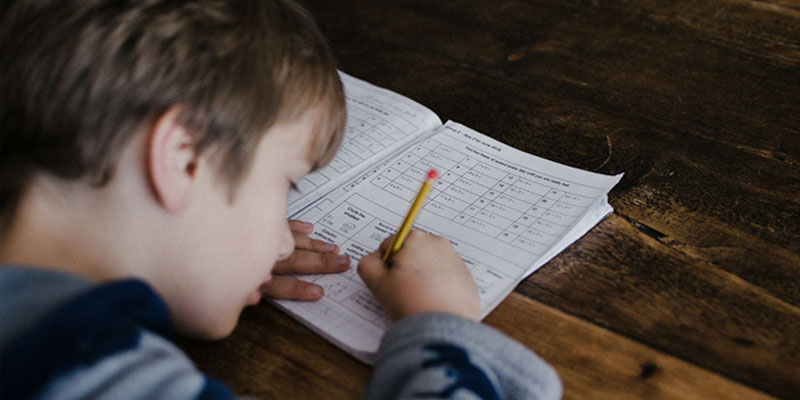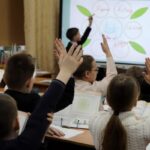We explain what learning is and what learning refers to in psychology. Also, the theories of learning and how it is classified.

What is learning?
Learning is the process through which human beings acquire, modify or refine their abilities, skills, knowledge or behaviors as a result of experience, which may include study, observation, instruction, or practice. It represents a relatively permanent change, that is, it lasts for a certain time.
There are various approaches to learning. Some theories are based on the observable changes that learning produces in behavior (behaviorism) and others focus on changes in thought processes, which are internal (cognitivism). Both perspectives try to explain how people manage to learn and provide valuable information to improve educational practices.
human learning It is linked to social, emotional, cultural and biological variables. Motivation is an essential component, since, being an active process, it involves selectively attending to the environment, using memory, reasoning and applying various mental tools.
People learn throughout life. Pedagogy, psychopedagogy and educational psychology are responsible for studying the different types of learning and their dynamics in different areas and life stages. Likewise, they are responsible for designing educational strategies and pedagogical plans to enhance the capabilities of each individual.
- See also: Psychopedagogy
Learning in psychology

In psychology, learning is a central concept. The psychology of learning studies the way people acquire and process information, educational practices, and the factors that influence learning.
There are different theoretical bases from which it is explained how new knowledge, behaviors or attitudes are acquired, and which are fundamental for the design of effective educational plans. For example, the behavioral, cognitive, constructivist and sociocognitive perspectives.
Psychology in education seeks to understand the learning process from a biopsychosocial approach. For this, they are taken into account:
- Cognitive processes. They are the functions that allow us to acquire, store, process and use information, such as attention, memory and thinking.
- Factors that influence learning. They are the variables that condition learning, favoring it or not. They can be internal, such as attitude, self-esteem or interest; or external, such as the socioeconomic context, the family environment or the availability of educational resources.
- Possible interventions It involves the application of psychological theories and principles to improve teaching strategies, design study methods, identify possible difficulties or problems and select strategies and methodologies appropriate to each situation.
- It may help you: Pedagogy
Learning theories
Learning theories are explanations about how human beings learn. They offer a perspective to interpret the learning facts and suggestions in the face of difficulties. The most representative theories are behaviourist, cognitive, constructivist and information processing theories.
behavioral theories
behavioral theories focus on observable and measurable behaviors. They affirm that behavior is determined by a dynamic of reinforcements and punishments. The founder of this current is John. B. Watson (1878-1958), who maintains that all behavior can be explained in terms of conditioning and learning.
According to behaviorism, Learning is achieved when an appropriate response to a certain stimulus is demonstrated. For example, faced with a mathematical equation (stimulus), a student finds out the result (answer).
Cognitive theories
Cognitive theories arise in response to behaviorism. They consider the human being as active, as long as he processes the information he receives. Learning involves developing intellectual skills to classify and structure knowledge.
Cognitivism studies internal mental processes, such as thinking, perception, and memory. Learning is understood as an active process of acquiring, processing and storing information. Cognitive theories emphasize that knowledge must be meaningful and that students must organize and relate new information to their prior knowledge.
Constructivist theories
Constructivist theories maintain that knowledge is constructed through experience and depends on interpretation. That is, learning is not about processing and storing information, but about constructing it. Reality is not perceived objectively, so Learning is a dynamic process that involves interpreting and reorganizing information.
For constructivism, the Social and cultural context plays an important role in the learning process. Activities must be linked to real experiences familiar to students. The objective of teaching is for students to elaborate and interpret information. The student is the one who creates the meaning.
Theories of information processing
Theories of information processing focus on the integration of new technologies in the educational process.
In this framework, George Siemens (1970) and Stephen Downes (1959) propose a theory known as “connectivism”, which suggests that Learning is a process of connecting sources of information. From this approach, knowledge not only resides in the human being, but is distributed outside of it, through networks of connections in social and digital environments.
Learning involves using technological and collaborative tools to continuously share, acquire and compare information. It is necessary to develop basic skills such as establishing connections between ideas and concepts, and making decisions to adapt to a constantly changing reality.
Types of learning
Depending on the approach and methodology applied, different types of learning can be distinguished. Some of them are:
- Discovery learning. People acquire knowledge through exploration and problem solving, as part of an active process.
- Meaningful learning. It allows the subject to relate new information with their previous knowledge, creating a network of relevant knowledge. It is based on understanding.
- Dialogical learning. It is built through the exchange of ideas and conversation. It is based on joint reflection and collaboration.
- Responsive learning. The learning subject receives and assimilates the information in order to later reproduce it, without any type of personal discovery.
- Repetitive learning. It is based on the repetition of the content to be learned, to fix it in memory. It is useful for memorizing data or practicing specific skills. For example, practicing a piece of music repeatedly to consolidate its execution.
- Observational learning. It is based on the observation of the behavior of other people, who function as models. It is also known as learning by modeling or imitation.
- Learning by trial and error. It consists of trying an answer to a problem as many times as necessary until you find the right one.
References
- Alonso García, JI (2012). Psychology. Mac Graw Hill.
- Castañeda Ramírez, IG (2008). Learning, through the eyes of different authors. Educational Ethos41. https://imced.edu.mx
- Ormrod, J. E. (2005). Human learning. Pearson.





